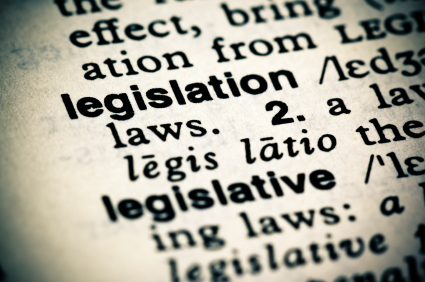The legal and political environment - introduction
 Governments want to encourage business activity, but they also need to pass laws and put in place rules and regulations to control business activity and avoid undesirable outcomes or negative externalities. They may pass regulations concerning the employment of people, environmental impact or perhaps constraints to ensure that all advertising is legal, decent and truthful.
Governments want to encourage business activity, but they also need to pass laws and put in place rules and regulations to control business activity and avoid undesirable outcomes or negative externalities. They may pass regulations concerning the employment of people, environmental impact or perhaps constraints to ensure that all advertising is legal, decent and truthful.
The legal environment therefore impacts on all business behaviour and can be split into a number of different areas:
- Employment legislation - rules, regulations and laws concerning the employment of people.
- Environmental legislation - laws, rules and regulations concerning the environmental impact that then operations of firms create.
- Consumer law - businesses sell to consumers and it is important that consumers have protection to ensure they are not misled or treated unfairly by firms.
- Competition law - competition is a healthy way to ensure that prices are kept down and that businesses innovate. Without competition firms may be in a position to exploit consumers and so governments often legislate to try to ensure competition is fair and to prevent the development of monopolies.
- Information /reporting law - governments often legislate to ensure that the information that firms provide is accurate and reflects the true state ('a true and fair view') of the business. These types of rules and regulations may include accounting regulations/standards to ensure firms represent their financial position accurately and ensure that firms do not keep information on consumers that they are not entitled to retain.
- Social legislation - here government attempts to promote the consumption of merit goods, which enhance human welfare such as education and health services, and discourages or prevents the consumption of demerit goods such as tobacco, and petrol. Demerit goods result in higher social costs.
